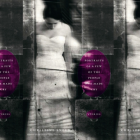Literary Boroughs #46: Stone Town, Zanzibar, and Dar es Salaam, Tanzania
The Literary Boroughs series will explore little-known and well-known literary communities across the country and world and show that while literary culture can exist online without regard to geographic location, it also continues to thrive locally. Posts are by no means exhaustive and we encourage our readers to contribute in the comment section. The series will run on our blog from May 2012 until AWP13 in Boston. Please enjoy the forty-sixth post on Stone Town and Dar es Salaam, by Amanda Leigh Lichtenstein. -Andrea Martucci, Ploughshares Managing Editor
The Swahili coastal cities of Dar es Salaam, Tanzania, and Stone Town, Zanzibar have inspired the imaginations of artists and writers for centuries. From holy religious texts to contemporary fictions, the region attracts seekers, adventurers, and dreamers. Once the seat of the Omani Sultanate, Stone Town, Zanzibar was not only a major Indian Ocean trade centre for spice, ivory, and slaves, but was also an intellectual Mecca. Today it is one of the oldest living Swahili cities, and World Heritage site where a potent mix of traditional African and Islamic traditions contends with globalization and tourism. Dar es Salaam, a booming East African metropolis on the mainland, was fondly named “haven of peace” by former Sultan Sayyid Majid of Zanzibar. Fondly known as “Dar,” it has attracted its fair share of revolutionaries, religious luminaries, artists, politicians, and activists. Dar is the financial and cultural capitol of Tanzania and proudly boasts itself as a contemporary East African city on the rise.
Zanzibar is the acclaimed “birthplace” of Swahili, the lingua franca of East Africa. In both Stone Town and Dar es Salaam, Swahili literature, poems, and songs abound, ranging from traditional utenzi and maulidi (spiritual, Islamic-inspired verse) to contemporary Taarab (sung Swahili poems set to Middle Eastern orchestration) and Bongo Flava (East African hip-hop). The ubiquitous kanga cloth, worn by women in East Africa, is known for its puzzling poetic messages woven into each design. Even the local transport, ‘dala-dala,’ are adorned with witty, sometimes ominous messages written in bombastic script. The language is rich with jokes and metaphors that spin both the written and spoken word in surprising directions.
Resident writers/poets:
There is a both a strong oral and written literary history in Tanzania with some of the more well known published writers among them being Abdulrazak Gurnah, Shafi Adam Shafi, Amir Mohammed (poet), Haji Gora Haji (poet), Ebrahim Hussein, Euphrase Kezilahabi (poet), Shaaban bin Robert, and Charlotte Hill O’Neal.
Literary References:
Memoirs of an Arabian Princess in Zanzibar by Emily Reute (Princess Salme), is the first autobiography written by a woman with East African roots. The daughter of a concubine, Reute fondly recalls her peacock and gazelle-filled childhood within the walls of Omani Sultan Sayyid’s palace on Zanzibar and later recounts falling in love with a German businessman, running off with him to Europe, where she eventually writes her life story.
There is a wealth of references to Zanzibar in British literature from late 18th century until the early 1960’s. Evelyn Waugh writes about his visit to Stone Town in the early 1930’s during which he stayed at the English Club in Remote People. Shafi Adam Shafi’s Vuta N’Kuvute, a Swahili novel, is set in Zanzibar and references famous Taarab Clubs, bands, and Swahili diners back in the day. Novelist Abdulrazak Gurnah writes haunting narratives such as Admiring Silence which are often set or conjure up images of his native Zanzibar. M.G Vassanji, author of Book of Secrets, also wrote Uhuru Street, set in Dar es Salaam.
The autobiography Going Solo, by the illustrious Roald Dahl (author of Charlie and the Chocolate Factory), documents his memories of living in Dar es Salaam as a young worker for Shell Enterprises. The Revolutionary Che Guevera references Dar es Salaam as the first city he encounters in his Congo Diaries – all about his “lost” year in Africa training military rebels in the Congo. Laura Sykes wrote Dar es Salaam: A Dozen Drives around the City and Murray McMillan recently wrote Tehaka’s Journey which references Dar es Salaam. Theroux’s Dark Star Safari, Exile by Danish writer Jakob Ejersbo, Zanzibar by Giles Foden, and Tara Kai’s Dar es Salaam, a novel, also come to mind as writers from around the world contend with complex expatriate dynamics in both fiction and travel narratives.
Where to learn:
If big cities are your thing, dive into the textured world of Dar es Salaam, where writers might never tire of the onslaught against the senses. Amidst the many diverse departments and programs at the University of Dar es Salaam, you can enroll directly in their Masters in Kiswahili language & literature. UDSM’s College of Arts and Social Sciences also has active literature and theatre departments where enrolled students can take courses in African oral and written literature and performing arts. Since 1961, the university’s vast and leafy campus of schools and centers, located 13 kilometres west of Dar’s city centre, have attracted both national and international students, including famous writers like Dr. Patricia McFadden, a radical feminist from Swaziland.
For those who prefer a slower roll, writers will find endless inspiration in Stone Town, on the island of Unguja, while roaming through this labyrinthine city with eclectic architecture and bustling street life. Writers interested in learning standard Swahili, including tricky proverbs, riddles, and myths, can enroll in monthly classes with the School of Kiswahili and Foreign Languages at the State University of Zanzibar, situated within the urban Vuga-area campus in the heart of Stone Town. The School now offers courses for Beginners through Advanced, including a Masters in Kiswahili language & literature, and even a Ph.D. for those truly obsessed with this rich metaphorical language.
Where to find reading material:
Since 1966, TPH Bookshop has been the go-to spot for books written by leading intellectuals, cultural workers, writers, poets, and visionaries from East Africa and around the world. Founded by leading intellectual and activist Walter Bgoya, TPH promotes itself as the one and only independent and indigenous bookstore in Dar, stocking both academic and literary texts, with a wide variety of English and Swahili options. Tucked away at 47 Samora Avenue in city centre, an historic avenue packed with curio shops, the book store is a never ending source for inspiration on politics, language, culture, history, the arts, literature.
A Novel Idea has been the leading source for English language books in Tanzania, with four locations in Dar es Salaam and one in Stone Town. The Zanzibar location is 236 Hurumzi hotel in the Hurumzi neighbourhood. The best Dar locations are at Slipway, with ocean views, and Oyster Bay, with a delicious cafe called Black Tomato located within the shop that serves wonderful coffee, sandwiches, and desserts.
A few tourist shops like Memories and Gallery Bookstore in Stone Town stock contemporary African fiction, poetry, biographies, and children’s books. Soma Book Cafe, located in Dar es Salaam’s Kinondoni area, at Regent Estate, was initiated to support and encourage a reading culture in Tanzania and identifies as an “alternative space for leisure, culture, and reading.”
Zanzibar Central Library was updated and reopened in March 2010 and is located near the Archives in Zanzibar Town. Tanganyika Library off Bibi Titi Road in Dar es Salaam is the largest library in the country. And if second-hand books appeal, there are plenty of fascinating selections at the Secondhand Book Stalls located between Pamba and Ohio Street in City Centre, Dar es Salaam, and along Gizenga Street close to Kenyatta Road in Stone Town. There you can find books in every language and on every subject, ranging from self-help to liberation theology, rare Swahili dramas and alluring political biographies.
Where to get published:
There is no plethora of literary magazines or journals in Tanzania, but there’s a burgeoning online presence via poetry blogs and a variety of publishers and presses that hint at a promising future for publishing new literary works. Among them are Mkuki na Nyota Publishers, Andika Africa Publishers, founded by Neema Kambona, and the Publishers Association of Tanzania, along with the Tanzania Publishing House, founded by leading intellectual Walter Bgoya (on hiatus but many books are still in print). There’s the Book Development Council of Tanzania (BAMVITA) along with the Dar es Salaam University Press, which mostly publishes academic texts but occasionally produces literary works and drama.
As for online poetry blogs, it’s worth checking out Maneno (Swahili for “words”), featuring original writings by Stone Town writers/poets who attend the Maneno poetry night, and Fanani Flava Poetry Club a now-defunct poetry club in Dar that maintains a nice online archive of work. The Zanzibar Broadcasting Corporation also hosts a weekly poetry series on local radio stations.
Contemporary artist Sarah Markes’ Street Level is the closest it gets to a contemporary literary arts journal coming out of Dar es Salaam, incorporating sketches and drawings of urban street scenes paired with creative writing and poetry with some of Dar’s up-and-coming literati.
Where to write:
Stone Town Cafe is a great little coffee spot to write and people-watch at the same time, as well as Archipelago and Cafe Foro, with views of the sea, at Forodhani Gardens. Zanzibar Coffee House is also a lovely spot with great coffee, inspired architecture, and strong writing tables. For generous sea views and privacy (at least beyond happy hour) try the hidden gem Traveller’s Cafe behind the Coastal Aviation office near Serena Hotel. For a glass of wine with your thoughts, try the House of Spices rooftop bar near Darajani Market. Breathtaking inspiration abounds on the rooftops of 236 Hurumzi or Emerson Spice. The Serena at Kilele Square in Stone Town has a lovely little shisha smoking room in which you could curl up with a laptop and an ocean view.
In Dar es Salaam, writers enjoy strong coffee while powering up their laptops at Mokka City in City Centre, or Black Tomato on the Peninsula for a more tranquil, chill place to read, write, and nosh. For leafy splendor, try the tucked-away Botanical Gardens just behind Southern Sun Hotel in City Centre or the more manicured gardens at the National Museum. The “Indian Library” off Zanaki Street is another quiet nook to write in Dar.
Events/festivals:
Dar es Salaam Book Week and Book Fair happens every November. Pen & Mic meets tri-monthly in Dar es Salaam at Saffron Restaurant at Quality Plaza. Poetry Tanzania offers La Poetista Poetry Night, which meets at Nyumbani Lounge in Dar es Salaam every other Thursday.
Maneno: Stone Town Poetry Night meets every third Tuesday of the month in Stone Town, Zanzibar. The Jahazi Literary and Jazz Festival is an annual festival held in Stone Town, Zanzibar, celebrating the power of music and language. The Zanzibar International Film Festival is an annual film festival held in Stone Town, Zanzibar with screenwriting and script development workshops by visiting directors and writers.
The Jambiani International Literary Festival will take place in March of 2013 in the rural village of Jambiani, and will feature leading writers and poets from Africa and the Diaspora. The Alliance Francais, The Goethe Institute, and The British Council in Dar es Salaam all occasionally produce literary events and invite guest poets and writers from around the world — check their websites and program schedules for details.
While the literary life is not always obvious in Dar or Stone Town, it’s far from dormant, and appears to be stirring in new and unexpected directions every day. Even quieter organizations like the Zanzibar Writers’ Association and the Chukwaza Chama Cha Kuendeleza Washairi (Party for the Promotion of Swahili Poetry) are working to find new ways to engage the public. And the literary buzz is not just happening along the coast. If you ever make it to Arusha, check out the Arusha Poetry Club, often frequented by Charlotte Hill O’Neal (wife of Black Panther Pete O’Neal) along with a whole new generation of new poetic voices emerging from northern Tanzania.
Amanda Leigh Lichtenstein writes poetry and creative nonfiction. Her work has appeared in Horse Less Review, Another Chicago Magazine, Painted Bride Quarterly, among others. She currently lives and works in Stone Town, Zanzibar as the Resident Director of a Swahili language and cultural studies center at the State University of Zanzibar. She writes essays on Zanzibar for Contrary Magazine: The Journal of Unpopular Discontent. She extends her thanks to all who contributed to this guide, including Mkuki Bgoya, Pernille Baerendtsen, and Rachel Hamada.
All photos: Pernille Baerendtsen



